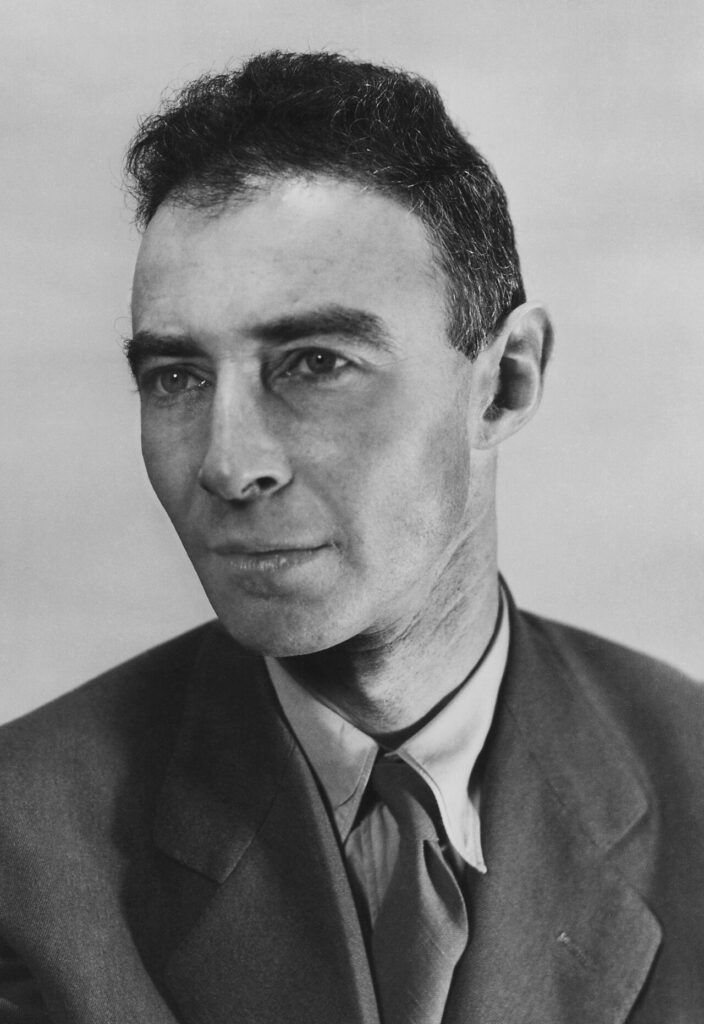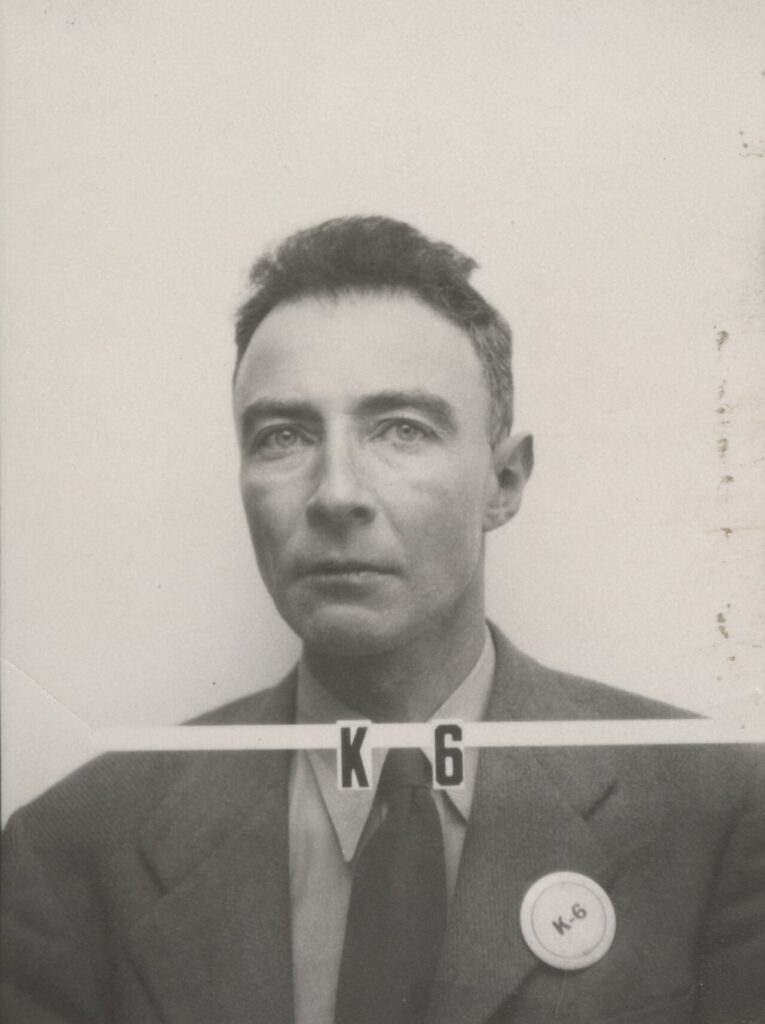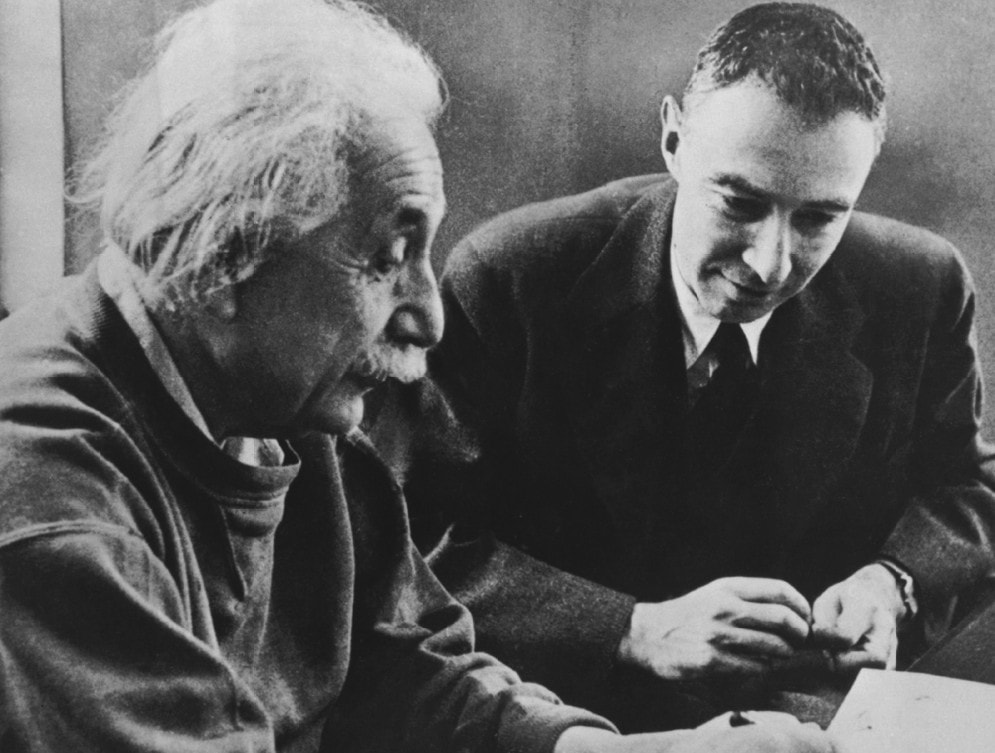With Oppenheimer hitting theaters this past weekend and pulling in over $80 million, we took some time to do a deep dive on the development of the atom bomb and J. Robert Oppenheimer’s role.
The history of the atom bomb is both fascinating and unsettling, a testament to human ingenuity and the catastrophic power one can wield. At the center of this remarkable journey stands J. Robert Oppenheimer, a brilliant physicist whose leadership and genius paved the way for the development of this world-changing weapon.
Table of Contents
ToggleThe Genesis of the Atomic Age: Scientific Curiosity Meets Global Tensions
The seeds of the atom bomb were sown in the early 20th century when scientists began exploring the mysterious world of atomic particles. In 1895, Wilhelm Conrad Roentgen’s discovery of X-rays ignited interest in the hidden realm of subatomic particles. Building on this breakthrough, scientists like Ernest Rutherford and Niels Bohr made groundbreaking strides in understanding the structure of atoms, leading to the formulation of the revolutionary atomic model.
The 1930s saw escalating global tensions with the looming of World War II. Fearing the destructive potential of nuclear energy, prominent physicists, including Albert Einstein and Leo Szilard, signed a letter to President Franklin D. Roosevelt in 1939, warning of the potential for Nazi Germany to develop an atomic weapon. This letter set in motion a series of events that would eventually result in the Manhattan Project.
The Manhattan Project: A Herculean Effort of Science and Engineering
The Manhattan Project, launched in 1942, was a top-secret research and development endeavor led by the United States, the United Kingdom, and Canada. Its primary objective was to develop the first atomic bomb before the Axis powers could achieve the same feat. The project brought together brilliant minds from various scientific disciplines, including physics, chemistry, and engineering, in an unprecedented collaboration.

At the helm of this colossal undertaking was J. Robert Oppenheimer, a distinguished physicist with an exceptional academic record and a deep fascination with the fundamental nature of the universe. Born on April 22, 1904, in New York City, Oppenheimer’s academic prowess became evident early on, and he attended prestigious institutions such as Harvard and the University of Cambridge.
The Visionary Leader: Oppenheimer’s Role in the Manhattan Project
Oppenheimer’s appointment as the scientific director of the Los Alamos Laboratory in New Mexico marked a turning point in the Manhattan Project. His innate brilliance made him an ideal choice to spearhead this ambitious scientific mission. Despite facing several technical and logistical challenges, Oppenheimer fostered an environment that encouraged creativity and innovation among his team.

His ability to integrate diverse talents and disciplines led to groundbreaking advancements in nuclear physics and engineering. Under his guidance, scientists like Enrico Fermi and Richard Feynman made pivotal contributions, pushing the boundaries of scientific knowledge and understanding.
The Trinity Test: Unleashing the Power of the Atom
On July 16, 1945, the world stood witness to a moment of immense significance – the Trinity test. This was the first-ever detonation of a nuclear device, marking the culmination of years of intense work by Oppenheimer and his team. The test was conducted in the remote desert of New Mexico, with a massive amount of energy released in a matter of milliseconds.
“Now I am become Death, the destroyer of worlds.”
Oppenheimer, quoting the ancient Hindu scripture Bhagavad Gita
The moment was a stark realization of the unimaginable power harnessed through scientific discovery, forever altering the course of human history.
Hiroshima and Nagasaki: The Dreadful Unleashing of Atomic Power
The devastating power of the atom bomb was unleashed upon the world on August 6, 1945, when the United States dropped an atomic bomb on the Japanese city of Hiroshima. Three days later, another bomb fell on Nagasaki. These bombings marked the first and only use of nuclear weapons in warfare to date, resulting in the loss of hundreds of thousands of lives and leaving a lasting scar on the collective human conscience.

Aftermath and Controversy: Oppenheimer’s Struggle
In the aftermath of World War II, the world grappled with the moral implications of atomic warfare. The destructive capacity of the bomb raised pressing questions about the responsible use of such power. As the Cold War ensued, the arms race between the United States and the Soviet Union escalated, increasing global tension and heightening concerns about nuclear proliferation.
J. Robert Oppenheimer found himself entangled in political controversy during the post-war years. His previous association with left-wing political groups and his vocal opposition to the development of the hydrogen bomb brought him under suspicion during the era of McCarthyism and the Second Red Scare. Despite his contributions to national security, he faced a security clearance hearing in 1954 and was eventually stripped of his security clearance.
Legacy and Reflections
The history of the atom bomb and its aftermath serves as a stark reminder of humanity’s capacity for both brilliance and destruction. The scientific breakthroughs achieved during the Manhattan Project paved the way for remarkable advancements in nuclear science, medicine, and energy. However, the use of atomic weapons on Hiroshima and Nagasaki underscores the necessity of responsible stewardship of scientific discovery.
J. Robert Oppenheimer, despite his personal struggles and the controversy surrounding his later years, is remembered as a visionary scientist and a key figure in shaping the course of modern physics. His legacy stands as a testament to the potential and perils of scientific knowledge and the delicate balance between progress and ethics.
The development and use of the atom bomb remain among the most complex and contentious chapters in human history.













